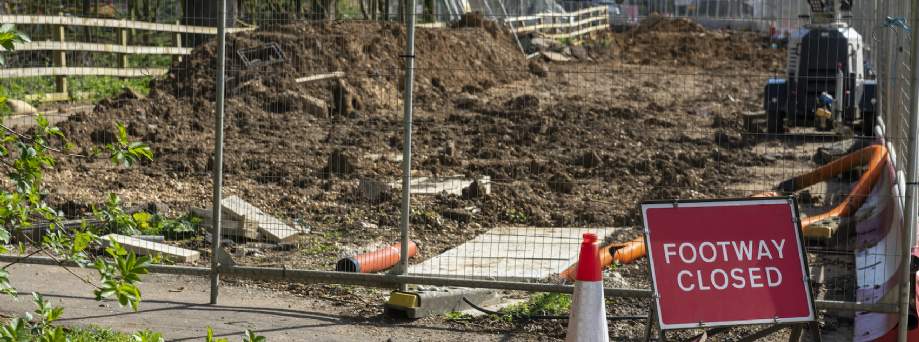Many of us are aware of road schemes which have been on and off the local agenda over the years, but what should farmers or landowners expect when a scheme is finally given the go ahead?
Road schemes are often handled by the local council or highways authority and these acquiring authorities will usually assemble the land needed for the project using compulsory purchase powers.
New road schemes require planning consent and the acquiring authority may twin-track the planning application with approval for a Compulsory Purchase Order (CPO). This tactic reduces the length of the process and gives the acquiring authority greater conviction when conducting initial negotiations with farmers or landowners.
Early engagement is encouraged to allow more time to discuss alternatives with the acquiring authority. This can also help to identify measures which could mitigate the effects of the scheme on your property.
When making a CPO, acquiring authorities must demonstrate that they have consulted with affected parties throughout the consultation stages. In some circumstances agreements can be reached without the need to resort to compulsory purchaser powers, but this will not be possible in every case. Taking professional advice early to consider all the options is essential.
The process of compulsory purchase can be lengthy, but taking a proactive approach can put you in a stronger position. The acquiring authority will serve a requisition for information notice on affected parties. All parties with an interest in the property, including tenants, must provide details of their interests within 21 days.
It is good practice to carry out a review of your affected interests as early as possible. This should include checking your registered title and any leases which may apply to the property. It is also advisable to check that everything you are doing has planning consent and to consider the potential for development, as this will be taken into account in the compensation you receive.
If you are trying to sell your property on the open market and a CPO has not yet been made, you could have a claim for ‘discretionary blight’ if the looming CPO is deterring buyers. A blight notice serves as a reverse form of compulsory purchase, where the acquiring authority is required to purchase your property at market value, ignoring the proposed scheme.
It is not always straightforward but a property owner must demonstrate that the CPO scheme has significantly impacted the affected property value; and the affected party must have tried to sell the property on the open market to show that it cannot be sold due to the scheme or that the sale price is significantly compromised.
When it comes to calculating compensation, it is typically allowed under three headings:
- the value of the land taken
- the disturbance caused to the lands by the scheme
- the effect of the severance on the retained lands (including ‘injurious affection’).
Early engagement with the acquiring authority provides an opportunity to raise initial concerns and alternatives. The planning application provides a further opportunity for planning related objections but, most importantly, objections can be lodged to the CPO when draft notices are served. The objection period must run for a minimum of 21 days and all sustained objections will be considered at a local inquiry into the CPO.

.jpg)

.jpg)
.jpg)
.jpg)




